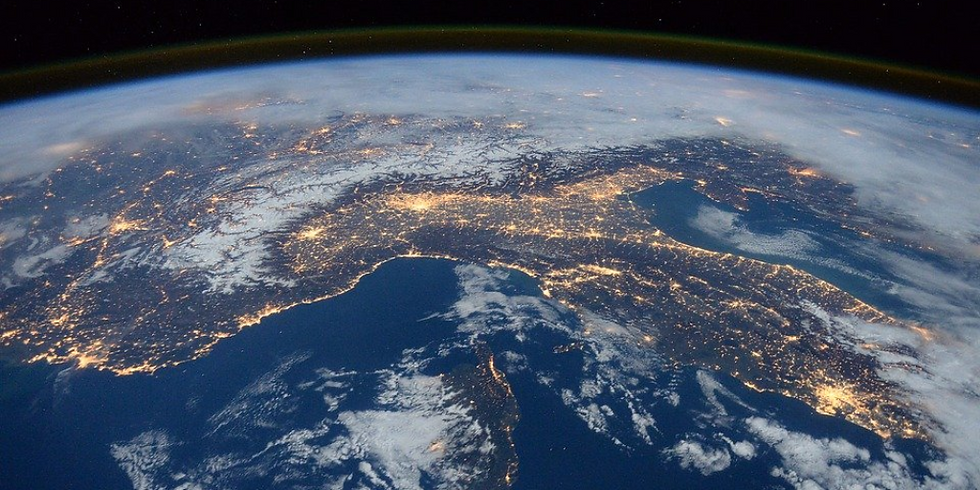Global Issues in Science Communication
- Scicomm Hannah

- Nov 16, 2019
- 3 min read
Science research is no longer bound by the same constraints faced 10 years ago. Research is taking an ever increasing interdisciplinary and international approach. As this develops so does the role of the science communicator. When talking about global issues in science communication, I am not nit-picking the flaws in communication taking place nationally and internationally, but focusing upon the issues that we (science communicators) face.
There are multiple global issues that all science communicators will encounter at some stage, some are clearly listed in the United Nations Sustainable Development Goals (2019). Challenges include; poverty, health and wellbeing, clean water, environmental degradation and climate change. Despite its ever increasing coverage in the news and promotion through groups such as Extinction Rebellion (2019), Amod states that some still see climate change in a certain way;
“a problem that belongs to someone else, somewhere else, in some distant time, or as something too enormous to fathom, possibly coupled with a sense of helplessness at ever doing anything to address it.” (2018)
In my opinion, communicating climate change, and encouraging action, is one of the biggest challenges that science communication is facing to date. Not only do communicators have to translate sometimes complicated environmental science research to a non academic audience, but need to angle the messaging in a way that brings the reality to the individual; basically answering the question “why should I care?”.

Illingworth, S (2018) states by considering the individual we can “support effective dialogue around the topic of climate change, and in doing so can better engender positive action against the negative effects of anthropogenic climate change”. When climate change effects can easily be seen by the individual, such changes in their local park, river or even pollinator levels, this task is easier for science communicators as the issue is closer to the audience and resonates with their personal lived experience.
The issue with climate change is that it can be so far detached and geographically distant from the audience science communicators are targeting, meaning that sparking an emotional response (the reason to care) can be a significant challenge. For a science communicator, how do we make audiences in the UK care about biodiversity in Colombia (NERC, 2019) for example? Bieniek-Tobasco et al, (2019) have looked into this to understand how we can encourage audiences to care and take action, and identified some of the barriers which included; lack of interest, lack of mobility and lack of decision autonomy to name a few. These aren’t things that science communicators have the capability or capacity to tackle (as much as we like a good challenge), we are limited to what we can control and influence.
Working out what is within our control as science communicators to discuss climate change and encourage action is an ever changing landscape. As climate change impacts develop, so must science communication. Sadly, I don’t believe the industry will be able to produce a singular definitive answer, and this is a challenge which will be presented to us for generations to come. For now, individually we can work together and watch others within the landscape to learn from their research and mistakes on how collaboratively we can communicate climate change such as learnings from the Climate Communications Project (2019).
Bibliography.
Amod, S. (2018). Communicating climate change: a hot topic?, Civil Engineering : Magazine of the South African Institution of Civil Engineering, vol. 26, (7), pp. 21-23.
Bieniek-Tobasco, A. McCormick, S. Rimal, R. Harrington, C. Shafer, M & Shikh, H. (2019) Communicating climate change through documentary film: imagery, emotion, and efficacy. Climatic Change, 154 (1-2), pp 1-18. Doi: https://doi-org.salford.idm.oclc.org/10.1007/s10584-019-02408-7
Extinction Rebellion (2019) Extinction Rebellion. Retrieved from: https://rebellion.earth/
Natural Environment Research Council (NERC) (2019) Exploring and Understanding Colombia Bio Resources. Retrieved from: https://nerc.ukri.org/research/funded/programmes/colombianbio/
The Climate Communications Project (2019). The Climate Communications Project. Retrieved from: https://theclimatecommsproject.org/
United Nations (2019) About the Sustainable Development Goals. Retrieved from: https://www.un.org/sustainabledevelopment/sustainable-development-goals/


Comments